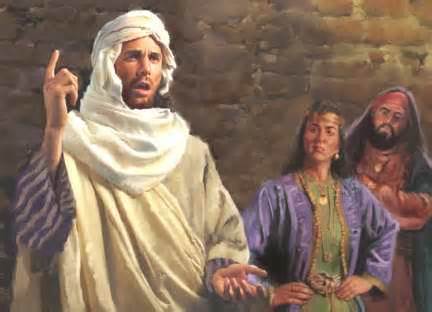INTRODUCTION TO AMOS
INTRODUCTION TO AMOS

Amos 5:24: “But let justice roll on like a river, righteousness like a never-failing stream!” (NIV)
This book was written to Northern Israel and also to God’s people everywhere. It was written during the reigns of Jeroboam ll of Israel and Uzziah (Azariah) of Judah, about 760 to 750 BC. The purpose of the Book of Amos is to pronounce God’s judgment upon Israel. The judgment was for their complacency, idolatry and oppression of the poor. The wealthy people of Northern Israel were enjoying peace and prosperity. They were quite complacent and were oppressing the poor, even selling their own people into slavery. The wealthy people lived in false security and lived in luxury derived from wealth squeezed from their poor countrymen. From a military and political point of view, Jeroboam II was a strong king. But idolatry and injustice flourished and under their noses the nation was rushing downhill to destruction. Soon Israel would be conquered by Assyria and the rich oppressors would themselves become slaves. Though Amos lived in a time of crisis…no one knew that it was a time of crisis. Destruction would come forty years later. It would be a time of crisis for their children and grandchildren.
Amos came from humble beginnings. He says of himself, “I was neither a prophet nor a prophet’s son, but I was a shepherd, and I also took care of sycamore-fig trees. But the Lord took me from tending the flock and said to me, ‘Go, prophesy to my people Israel'” (7:14,15). He was from Tekoa in Judah, tending sheep and fig trees. But he was called to speak God’s word to Northern Israel. He is an inspiration for all who hail from humble beginnings.
Amos prophesied during the reign of Jeroboam II, king of Israel, in about 760 BC, some 40 years before the Assyrian conquest of Samaria, capital of Israel. Amos preached repentance and called for justice and righteousness. Amos uses strong metaphors from his experience as a shepherd and a farmer; like a loaded cart (2:13), a roaring lion (3:8), a mutilated sheep (3:12), pampered cows (4:1), and a basket of fruit (8:1-2) He speaks very frankly in speaking against sin. He locked horns with the top religious leaders of the day and was not intimidated. He continued to speak his message boldly.
Like in Amos’ time, God requires truth and goodness, justice and righteousness from all people of all nations today too. Many of the conditions in Israel during Amos’ time are evident in today’s societies. God also requires us to speak up boldly in our generation. We need Amos’ courage to ignore danger and stand against sin.
The sections of the book can be broken down as this.
(i) Judgment on the Gentiles–1:1-2:3; (ii) Judgment on Israel–2:4-16; (iii) Israel’s guilt–3:1-6:14; (iv) Five visions– 7:1-9:10; (v) Israel’s restoration–9:11-15.
Some mega themes of this book are:
1) We are all answerable to God. God is in supreme control of all nations.
2) Complacency. Everyone was happy except for the poor and the oppressed. They were self sufficient and with a false sense of security. But with these brought corruption and destruction.
3) Oppression of the poor. The people became rich and greedy and unjust while the poor suffered. Our God is weary of greed and does not tolerate injustice.
4) Superficial religion. People were pretending to be religious. They needed spiritual integrity and practice heartfelt obedience to God.
-Application study Bible
-Mother Sarry Barry’s Daily bread






Interact with us using Facebook